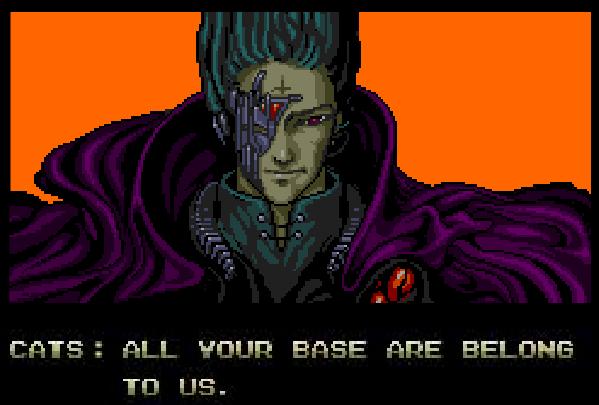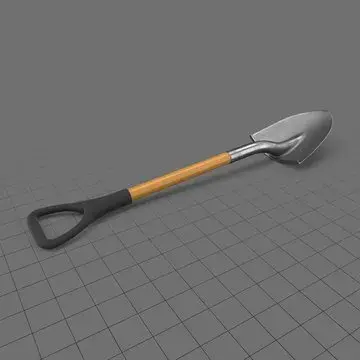It seems like it’d get increasingly impractical as the years go on to hundreds of thousands and millions of years to write them out that way, but then…I guess technically one may already do this with the preceding years, so future’s fair game for it?
We shkuld switch to a base12 number and metric system.
You’re thinking too small. Base 60 (Sexagesimal)…the Sumerians had the right idea.
we’re going to have a y2k bug situation all over again. the y10k bug
Ackchyually, the Y2K bug was pretty different. A lot of software, for various reasons, took to representing dates as a two digit number. This meant going from 1999 to 2000 would make that software try to understand dates going from 99 to potentially various of other values, like 00 or 100.
We’re gonna have a different form of that on machines with 32 bit processors relatively soon. Past some time on Jan 19th, 2038, the epoch time, a count of seconds since Jan 1st, 1970, is stored as a 32 bit signed integer. At this time, it’ll run out of positive values, will overflow, and cause the internal clocks of such machines to go back to 1901. It probably won’t happen again after that, as the maximum date represented by the largest signed integer a 64 bit machine can store is 292+ billion years
I’m pretty sure all operating systems have long ago switched to 64 bit date times. Of course, just like y2k, it’s the apps and their shortcuts that will be a problem.
There has to be millions of IoT/embedded crap that runs some long obsolete OS version or whatever. Consumer stuff indeed shifted a looong time ago.
Good luck to all the engineers billions of years from now having fun moving to 128-bit time. What fools we were.
Silver lining is, they should be done with the IPv6 migration by then.
Shouldn’t it go back to 1970? Why 1901?
The integer is signed, when it overflows it doesn’t go to 0, it goes from Max Positive Value to Max Minimum Value, which will be a very ‘large’ negative number (-2147483648 to be exact).
It’s a signed integer, meaning it has the same amount of space for negative numbers as it does for positive ones. Late 1901 is the same amount of time away from Jan 1st 1970 as early 2038 is
I don’t think anyone cares at this point, that’s a problem for 300ish generations from now.
I don’t think that’s a question any human will have to answer. Humanity will be long gone by then.
People already abbreviate to the last two digits when appropriate, so it’s not hard to imagine people doing the same for bigger numbers.
For keeping track of stuff electronically, we’re pretty much set too. 64 bit unix time will take us well over 100 billion years.
I was looking at some old pictures of my family and some of them had dates like 921 for 1921 in them. I used to abbreviate 88 for 1988, but I’ve never seen people using 3 digits like that.
During y2k, a third digit was one of the compromises for languages like Perl. There were so many places that only displayed a two digit year but rolling over to 00 would have made it difficult to sort or do date math, or even to convert to a four digit year. So the year rolled over from 99 to 100, so dates with two digit years could be sorted correctly. If you were only displaying two digits, it probably correctly displayed as 00. If you wanted to convert to four digit years,just add 1900
Grr. Is THAT why I had to subtract 1900 off my year for a damn c library time function?
Beyond maybe needing some sort of space calendar if we ever actually get off this rock in a way that matters, why not? An extra digit isnt all that big of a hassle.
If we’re no longer on earth, days and years will be based on whatever orbit we’re following. So I guess the counter would start from zero.
I’m sure we’ll switch to star dates by then.
Happy new year 2314737893516!
Can’t wait for the drama to patch Windows XP to survive y10k.
I put in a lot of extra hours helping prevent y2k from being a disaster but I hope they’re not expecting me again for y10k
Hello AA5B, what’s happening? Ummm, I’m gonna need you to go ahead come in on Saturday. So if you could be here around 9 that would be great, mmmkay…
Oh, and remember: next Friday… is Hawaiian shirt day. So, you know, if you want to, go ahead and wear a Hawaiian shirt and jeans.
The chosen one. You will be frozen and revived thousands of years later to make sure we don’t have to spend money to replace the label printer.
At that point we switch to a Year (three digit) and Millennium (M followed by two digits) system, so the year 10,001 would be noted as 001.M10. After 999 M10 we reach 000.M11, and so on. Most applications would only really need the year number. /s
According to Zager and Evans, the year 9595 will pretty much be it.
Never thought I’d see that song as being optimistic
It would make more sense to switch to a calendar with a different year 0. Like when human civilization started, which would make.the current year to 12k+. Or when earth started, which revolutions around the sun we are counting. Which would make the current year something with 4.5 billion.
There are a lot of things it depends on.
First is whether we are still using the same calendar base date. The currently accepted international system is based on Christendom, but there are other calendars out there with different dates. You could see a switch over if another group becomes more dominant. Or you could get another system implemented entirely; France tried to change its base year to the French Revolution.
Second is if Earth is the only human inhabited planet. We are already seeing that the Martian day throws a lot of coordination up in the air, and that is without having human bases there. It is possible that Mars develops its own calendar that better fits Martian time. At that point, the only link for calendars across humanity would be the Unix Epoch.
The Unix Epoch is obviously the correct base for any calendar.
Why would that be a problem? We already often only use the last two digits to refer to the year, that’ll probably not change.
Astronomers already use Julian Dates for various reasons. Right now it’s 2460261.2834606, it’ll be later by the time you read this. Julian dates/times are fractional days starting from January 1st, 4713 B.C. = 0. Just keep counting up from there.
So I got confused and had to read Wikipedia for this. Day 0 is Jan 1, 4713 BC. I feel this causes more confusion if it isn’t mentioned.
DOH, skipped those two critical letters! Thanks for the correction.
How are you still not confused??
So I just read through the same wiki and there is absolutely no explanation of why they start at 4713 BC. It’s just bizarrely stated as fact with no explanation.
It would be like if invented a card game called Percluey where you had to count to 44 and Yell “Percluey” to win the game. And 8s are also called perclueys and worth -3. Then when you ask why it’s 44 you just say “because that’s Percluey” and then when they ask you what the heck is a “Percluey” you just shrug and sip on your spritzer.
I don’t know if you read the right wiki, but in the history section the first paragraph is:
The Julian day number is based on the Julian Period proposed by Joseph Scaliger, a classical scholar, in 1583 (one year after the Gregorian calendar reform) as it is the product of three calendar cycles used with the Julian calendar:
28 (solar cycle) × 19 (lunar cycle) × 15 (indiction cycle) = 7980 years
Its epoch occurs when all three cycles (if they are continued backward far enough) were in their first year together. Years of the Julian Period are counted from this year, 4713 BC, as year 1, which was chosen to be before any historical record.[28]
It was either that, or earlier, or in the future. That’s the only year that kinda makes sense (solar = lunar = induction = 0). It looks odd but once you know you know, you know?
Or we are in the year 12023









